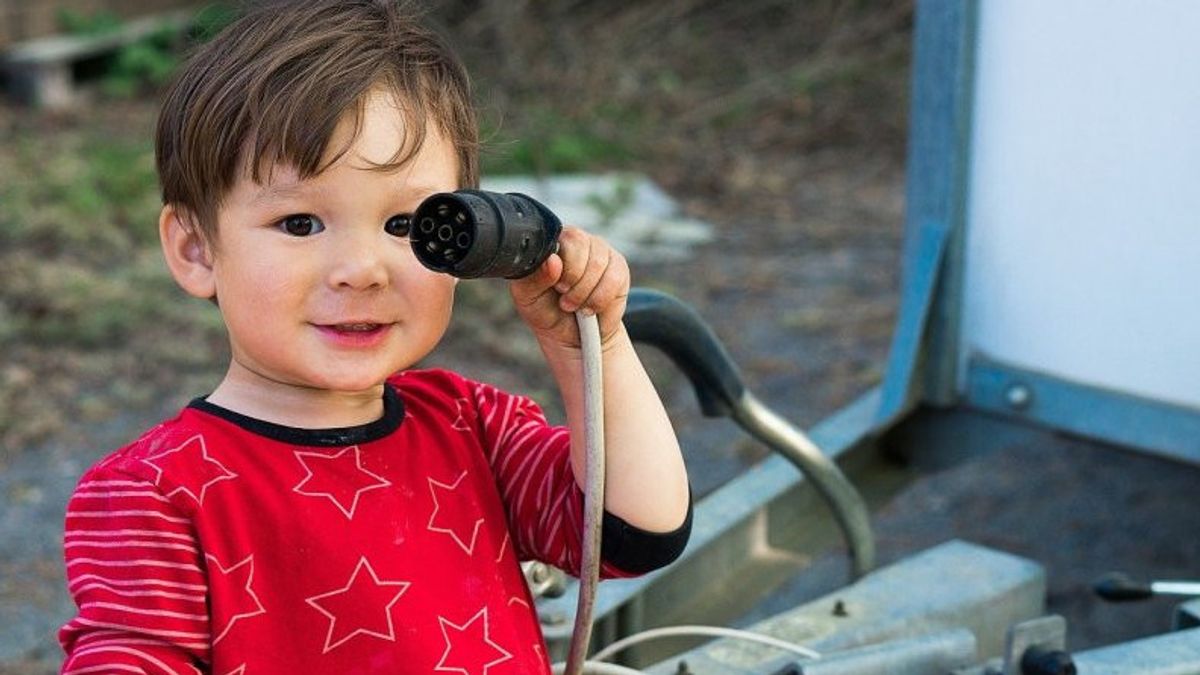JAKARTA - A consultant psychiatrist specialist in child and adolescent psychiatry from the Faculty of Medicine, University of Indonesia, Anggia Hapsari, invites parents to understand their child's feelings which can be expressed in various ways, according to the child's developmental level.
At all ages, he said, the strength of positive emotions is the basis for good adjustment.
"Babies who experience more emotions are happy to lay the foundations for good personal and social adjustments, as well as for behavioral patterns that will lead to happiness," said Anggia, quoted by Antara, Wednesday.
After passing through infancy, which is around the age of 2-6 years, pre-school children can already feel love and have the ability to be loving children, can feel other children who are sad, begin to feel sympathy and want to help. .
New preschoolers can express one emotion at a time, and are not yet able to combine emotions or feelings from confusing things.
When children are of school age (6-12 years), their cognitive abilities begin to develop so that the ability to be able to express their emotions is more varied and sometimes they can express simultaneously two different, even contradictory, forms of emotions.
At this stage, children begin to know when to control the expression of emotions as well as they master behavioral regulation skills that allow them to hide their emotions in a way that conforms to social rules.
By the time children are 12 years old and over, they are already able to analyze and evaluate the way they feel or think about things. Likewise for other people, this child who is almost entering adolescence, can already feel a deeper form of empathy.
"Differences in emotional development require special attention so that children have the ability to regulate their emotions properly," said Anggia who practices at Pondok Indah Hospital - Bintaro Jaya.
Train children to regulate emotionsAccording to Anggia, having a child with emotional intelligence does require a lot of stages and time. The first step that can be done is to train children to regulate their emotions.
There are several steps that parents can take to help children have emotional regulation, namely: recognizing emotions/self-feelings (name the feeling), recognizing other people's emotions/feelings, parents being present and listening to children's feelings.
Then, respond appropriately to the child's needs, do not react negatively when the child is fussy or angry, be a role model, enjoy playing with children and be interested in children's activities and teach children relaxation techniques (emotional toolbox).
However, sometimes children can experience negative emotions, which sometimes become emotional outbursts.
Anggia said this was natural. However, emotional outbursts in children must be watched out for if, for example, tantrums and outbursts occur at a stage of developmental age where they should not have occurred, namely over the age of 7-8 years.
Then, the child's behavior has endangered himself or others, caused serious problems at school, affected his ability to socialize with friends so that the child was ostracized by his friends.
In addition, children have tantrums and make it difficult for their family's daily life and feel unable to control their angry emotions and feel bad about themselves also need to be watched out for.
There are several factors that cause emotional problems that occur in children, including: ADHD (Attention Deficit Hyperactivity Disorder), anxiety/anxiety, trauma, learning difficulties, sensory processing issues, autism spectrum, little affection from family and friends. friends or too attached to one dominant figure.
According to Anggia, trust in parents and the model figures they observe in the family play a role in shaping children's confidence. This can help children to regulate their emotions and encourage them to be independent, and take risks.
The English, Chinese, Japanese, Arabic, and French versions are automatically generated by the AI. So there may still be inaccuracies in translating, please always see Indonesian as our main language. (system supported by DigitalSiber.id)













